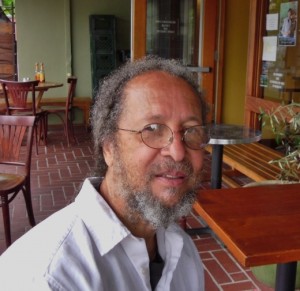Counterpoints: In the Wake of the Supreme Court Voting Rights Ruling
Jun 26, 2013
Posted in Commentary, Equal Rights/Equity
A preliminary – but basic – thought in the wake of the Supreme Court ruling on the Voting Rights Act
By Jesse Douglas Allen-Taylor
I was too young to be involved in the fight for the original passage of the Voting Rights Act in 1965, but I was in South Carolina during the struggle for renewal of the bill in the early 1980’s.

Many have forgotten that the Republicans temporarily took control of the United States Senate in 1980 during the year Ronald Reagan was elected President. That elevated South Carolina Senator Strom Thurmond to the chairmanship of the Senate Judiciary Committee. Thurmond immediately said that one of his goals as chair would be to kill the Voting Rights Act, which was up for renewal in 1982.
In South Carolina, we formed a group called the South Carolina Voting Rights Campaign to fight for renewal of the act. To show South Carolina support for the Act, we set a goal of 10,000 signatures on petitions. By the time the petition campaign ended, we delivered more than 30,000 signatures to every Congressional District office in the state as well as to the U.S. Congress in Washington.
At the same time, we sponsored workshops and rallies and demonstrations throughout South Carolina in support of the Voting Rights Act. When the Southern Christian Leadership Conference held a march from Selma, Alabama to Washington D.C. for the same purpose, we helped coordinate the march when it came through our state.
One of our actions was to follow Senator Thurmond every time he returned to South Carolina for a public event, holding demonstrations to protest his stand against the Voting Rights Act.
Some of us were jailed during those actions.
The fight put up by the South Carolina Voting Rights Campaign in 1981 and ’82 was only a small part of the Voting Rights Act support going on in South Carolina, throughout the South and many parts of the nation, and in the nation’s capitol.
It was because of those nationwide actions that Congress made some portions of the Voting Rights Act permanent, and extended others for 25 years through 2007. Without those actions, Senator Thurmond and his friends would almost certainly been successful, and the Voting Rights Act would have been killed more than 30 years ago.
That should give us a guide on how to react to the Supreme Court’s recent ruling, particularly as we observe state governments from Ohio to Texas enact laws making voting harder and harder for people who do not vote the way those governments would like them to vote.
This hits African-Americans the quickest and the hardest, but it is certainly not limited to us and ours.
The authority to participate in the governing of our communities, our cities, our state, and our country-the right to vote-is not secured by the Supreme Court.
That authority is not secured by a Presidential proclamation, or a civil war, or an act of Congress, or a voter initiative.
Our right to participate in the governing of our own lives was and is both authorized and held by our own hands.
It can be permanently minimized, or taken away altogether, only if we allow it.
The question, therefore, is not about what the Supreme Court has done. The question is, what must and will we do in response?